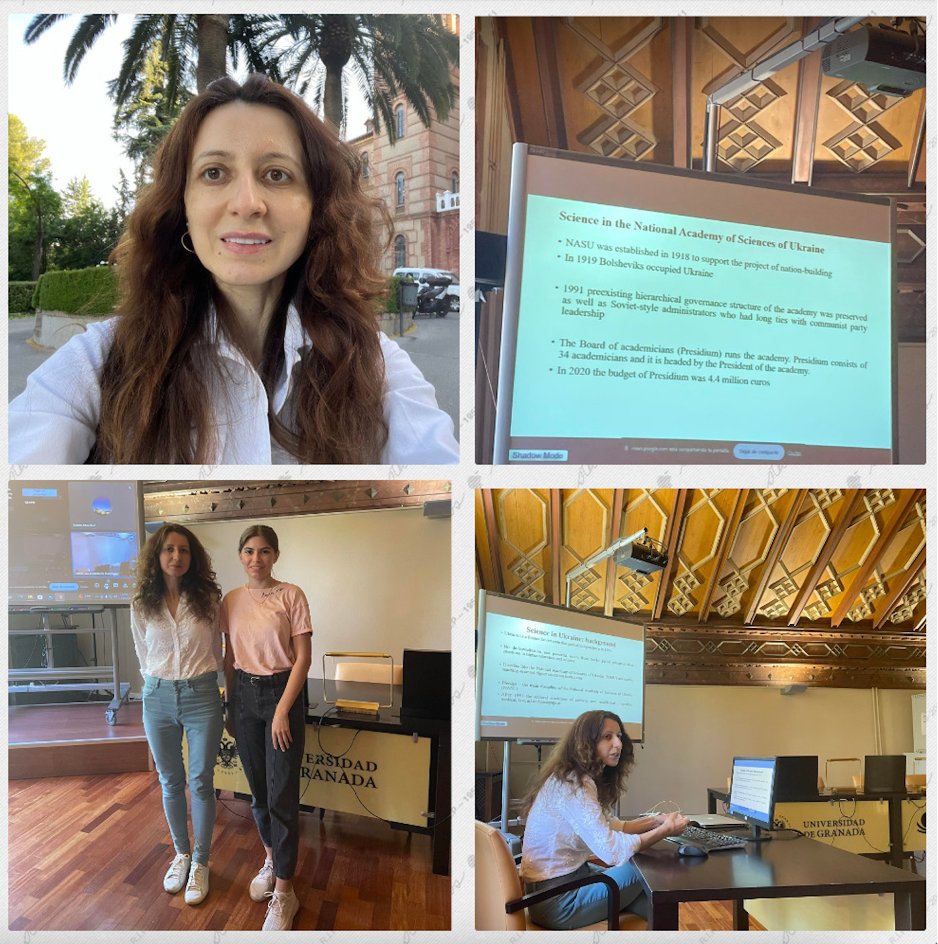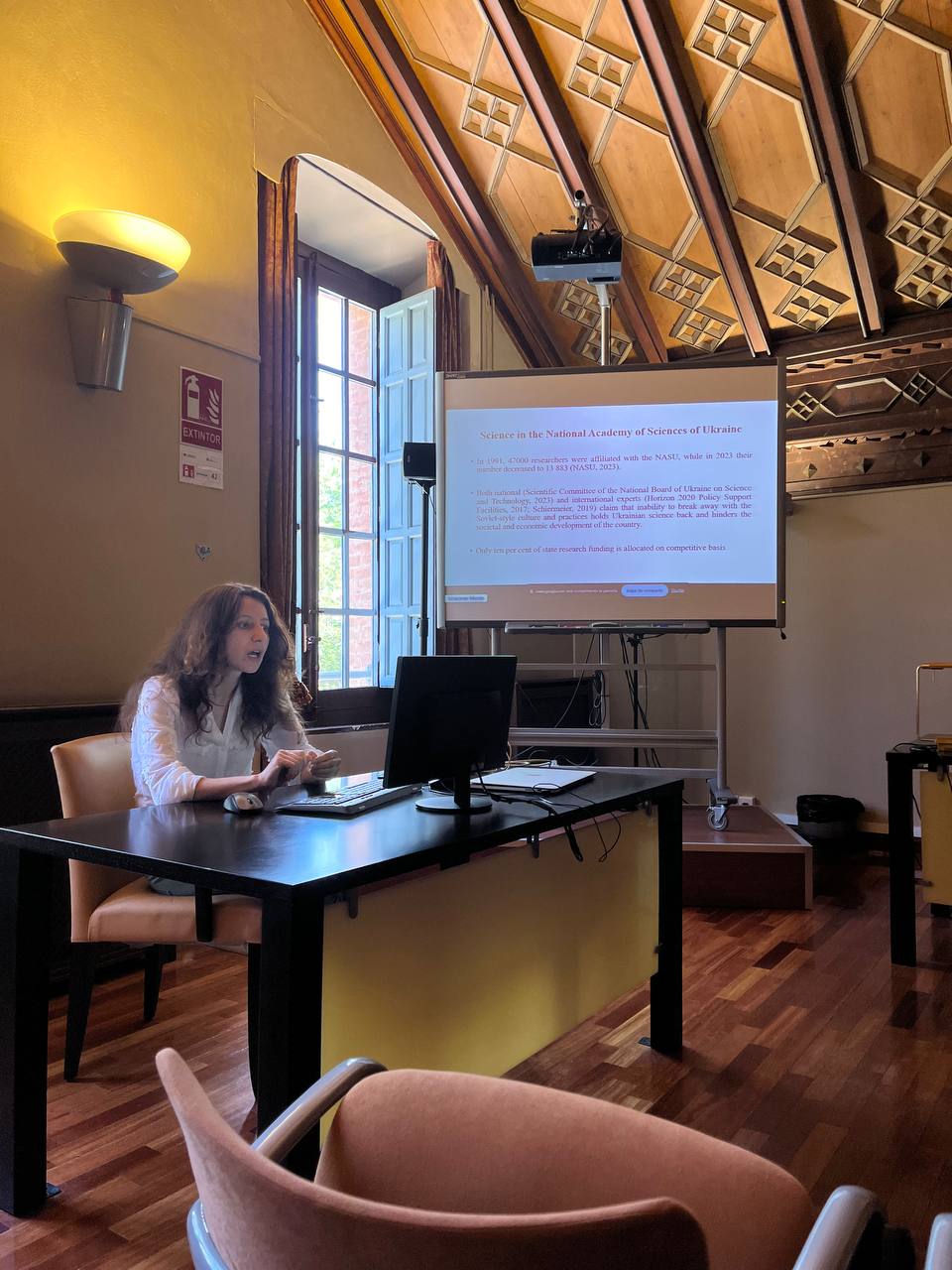Hello! It’s been a while, but we’re back with the (EC)3 Minutes section! This time we interviewed Myroslava Hladchenko, a post-doctoral researcher at the CWTS that visited the EC3 group at Granada from 8th until 19th May. During her stay we were able to enjoy her presentation on her latest research on academic mobility in Ukraine (for more info, see the Tweets!)
Without further ado, here’s the interview!
First of all, what is your background?
I’m a post-doctoral researcher at the Center for Science and Technology Studies (CWTS) at Leiden University. My position is funded by the MSCA4Ukraine fellowship. In 2007, I was awarded a PhD in Educational Studies by the Insititute of Education (National Academy of Educational Sciences of Ukraine). The thesis is entitled “Discipline-oriented secondary education in Germany”. In 2020, I was awarded a PhD by the University of Twente for the thesis “Global education models in national contexts: The establishment of research universities in Ukraine”. Before joining the CWTS, I was a researcher at CHEPS (Center for Higher Education Policy Studies, University of Twente, the Netherlands) and the Department of Science and Higher Education (Nicolaus Copernicus University, Poland). I was a visiting scholar at the International Centre for Higher Education Research-Kassel, University Kassel, funded by DAAD (2015) and Observatory of Social and Political Sciences, University of Lausanne, funded by SNSF (2015). This month, I’m on a visiting research experience at EC3 Research Group.
And what are your scientific interests?

My academic interests span across research evaluation policies in Ukraine. Now, I’m carrying out a research project “Development of research assessment practices that contribute to the development of Ukrainian science, economy and society”. I work together with Ludo Waltman and Rodrigo Costas. This research project aims to raise awareness among Ukrainian policymakers and academic community of the drawbacks of the current research assessment practices that are strongly focused on quantitative rather than qualitative considerations.
This issue is crucial for Ukraine, especially in the context of rebuilding after the negative consequences of the war. When the war is over, Ukrainian government needs not only to rebuild a country in the before-war state but also create beneficial societal and economic conditions for people to stay and return to Ukraine. Ukrainian government needs to consider science as part of the sustainable economy, while the preservation and development of human capital must be one of the goals. A country’s success in encouraging economic performance depends on its scientific profile and as such, on the design of research assessment policies. Quality research is supposed to result in social and economic development of Ukraine.
What will your tasks be at the EC3 research group?
During the collaboration with the EC3 research group and, in particular, with Nicolas Robinson-Garcia my research interest lies in academic mobility of Ukrainian researchers. We aim to explore the patterns of international mobility of Ukrainian researchers, including the implications of Russian invasion in Ukraine. The question is how the academic brain drain that has taken place in Ukraine for decades can be turned into brain circulation which can contribute to overcome the negative consequences of Russian invasion. We also investigate the relationship between mobility, productivity and performance.
That’s it! We hoped you enjoyed this afternoon as much as we enjoyed having Myroslava with us 🙂 See you soon!
